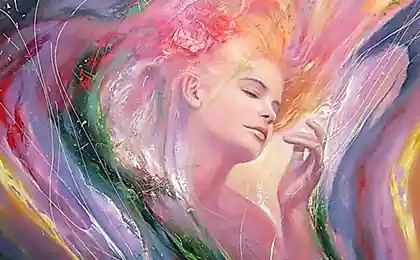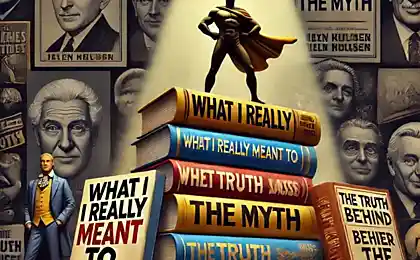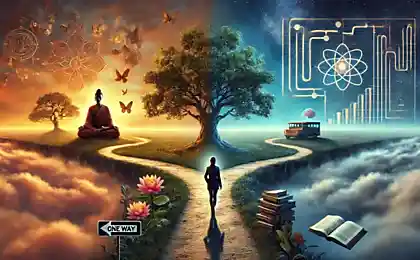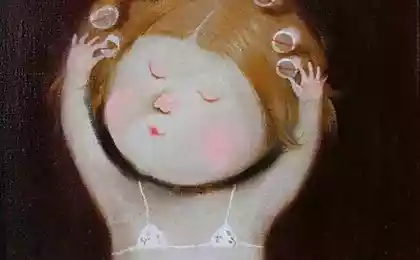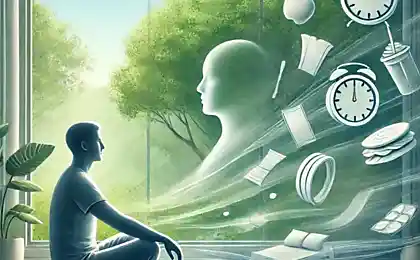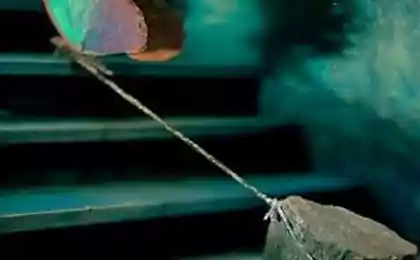189
The Mosaic of Wishing or What We Really Want

Who controls us, our desires or our desires? The needs underlying our desires are determined biologically, evolutionaryly, but the form of their realization can be both authentic and imposed on a person.
You can only give stupid answers to stupid questions or devalue a question by saying that it is stupid, not worry about its solution, but live with all your might without noticing such questions.
For me, the answer is that our desires create us and we create our desires. It's a mutually creative process. And the greater the degree of awareness, the higher the probability of adequate management of this process. In many ways, our desires are not ours. These are the wishes of our parents, our native TV, favorite glossy magazines and mythical heroes. If we do not notice this, it only means that these desires are imposed on us professionally. Such techniques of achieving desires are taught in inspiring trainings. To follow your desires, to achieve what you want, and not to see obstacles – this is the quintessence of achievement. Those who see no obstacles end up under the tram of desires.
It is very important to distinguish destructive desires from vital ones. Although the achievement of both gives immediate satisfaction, they are different in nature and consequences. What distinguishes destructive desires from vital ones? Destructives are much easier to satisfy, and it doesn’t require effort. The high is borrowed, but at fraudulent interest, for which a person then pays the price of his life. Therefore, on the one hand, a person strives for such desires, and on the other hand, hates them, realizing their weakness. The most common examples of satisfying destructive desires are alcohol, drugs and love addiction. First, they give a high on credit, but then take with huge interest.
If we want something, it is appropriate to ask ourselves the question: why do we need it? The honest response is sobering for some.
You will need a piece of paper and a pencil.
Instructions. Write the question at the top: “What do you want most in life?” Then formulate and write down the answer to this question. Write the question below: "Why?" Answer it honestly and ask again the question “Why?” in relation to that answer. As a result, you will get to what lies behind the facade desire or what it actually means to you. Sometimes funny discoveries happen.
Going to hunt for the desired object, remember: hunting is more than captivity. Often there is confusion: people think that they are hunters of desirable objects, and they themselves are the objects of this hunt. Those popular tips that are given to money hunters, husbands, women, fame, turn out to be the notes of the hunter's victim. All-consuming love consumes the lesser of the partners. Many of my friends in the early nineties were gambling for money and became their prey.
Having mastered desires, you will master the world in the prison of your own self-control. He who completely masters them loses all spontaneity. He is both a human target and a human target. He, of course, achieves the goal, often at the same time achieving himself. These are completely limited in their integrity nature. Such people are effective in “their” achievements, only life in them is not enough, as well as pleasure from it. Always being the first is the last wish. The desire to become great deprives the little joys of life of the realization of its absurdity and imperfection. It is impossible to be happy on your own, but unhappy is easy. Achieving happiness is a good selling and selling product. We can say that this is our main desire and... the most difficult to achieve. So does it make sense to achieve it? Maybe he doesn't exist at all? Is it better to focus your energy on something more earthly? For example, avoidance of misfortune.
It's time to take power... A separate category is those who want to improve the world at all costs. They want to make everyone happy, and in order to do so, they have to kill all the unhappy. If those who want to improve the world began to “improve” themselves, with the realization of the real motives that drive them, could the world really be a better place? Change happens as a byproduct of knowing where you are. A lot of people will say, "Here." But where are they really now? Those who actively want to change the world experience greater discomfort because they are less adapted to life. This is their itch – compensation for the fact that they are not adapted to their own peaceful life. If there is one thing we lack in life, it is the desire to take power over ourselves, over our destructive desires. The first stage of the power struggle is to realize that there is something above you, your ratio. To realize this is to name this phenomenon and place it in the focus of control. It is more effective to do this with the help of a professional, psychotherapist.
In the pursuit of illusions, many of us often don’t want what we really need. It is important to understand what is behind the desire. And give yourself an honest answer, not a noble and beautiful one in your own eyes and those around you. Behind the dream of many men over forty to have a powerful “yamaha” is often an unwillingness to recognize their age and the limitations associated with it: the wrong vision, the wrong reaction. Well, the red Porsche is an American classic of the illusion of articulation. It is a shame when a wish comes true, and satisfaction does not come, because the true need of a person is left behind. People often want not what they need, but what is imposed on them by social standards, reducing their lives by a dream to nothing and dying in the fulfillment of the wishes of others.
Author: Vladislav Bogodai
Source: www.psyh.ru/persons/other/view/182/
